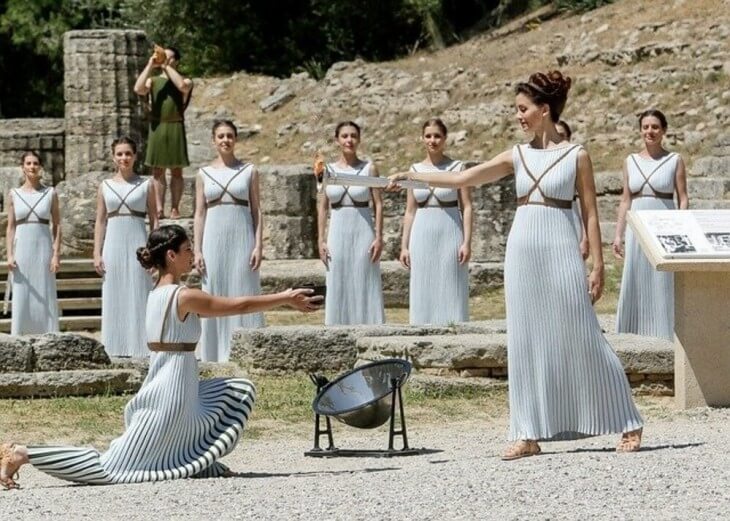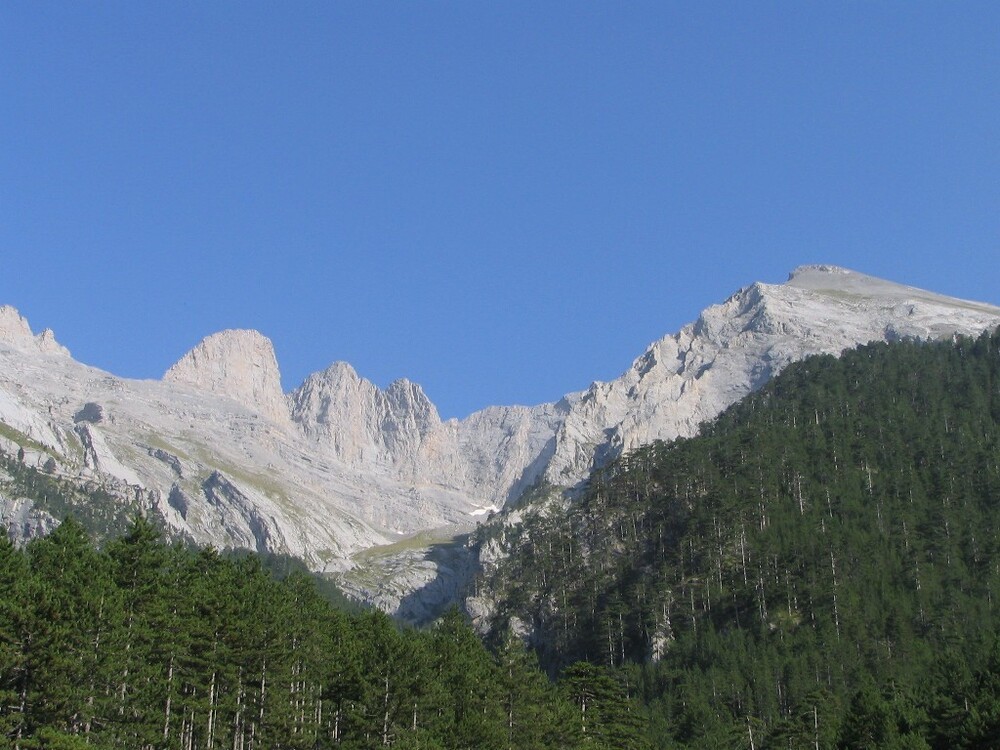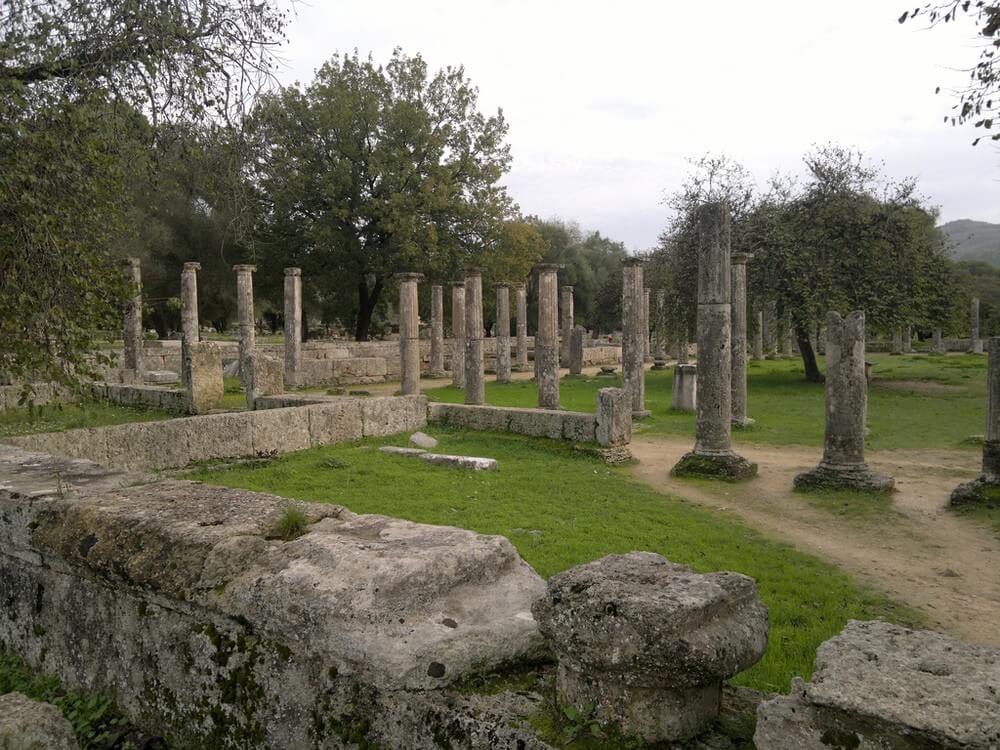Olympic Movement
18.10.2021


Gennady Marichev
Olympia
Olympia is a place in the south of Greece on the banks of the Alpheus River. This place became the site of the ancient Olympic Games.

-
Members of the discussion:
-
Last reply:
To begin with, I would like to draw the attention of readers to the following circumstance: many confuse Olymp and Olympia. Delusion leads to incorrectly drawn routes, misunderstanding of what has been said. In order for you to be constantly on the right path, I will inform you: Olymp and Olympia are two completely different places and located in different parts of Greece.
Olymp (Olympus) is a mountain. Highest in Greece. Almost 3000 meters (2917 m). The mountain is located in the north of Greece. According to Greek mythology, the gods sat on Olympus. Hence the name — Olympic gods. There were 12 gods: half were male, the other half were female. Competitions have never been held here.
Olymp (Olympus) is a mountain. Highest in Greece. Almost 3000 meters (2917 m). The mountain is located in the north of Greece. According to Greek mythology, the gods sat on Olympus. Hence the name — Olympic gods. There were 12 gods: half were male, the other half were female. Competitions have never been held here.

By L. Link
Olympia is a place in the south of Greece on the banks of the Alpheus River. This place became the site of the ancient Olympic Games. Feel the difference.

By John Karakatsanis, Link
It is not known exactly when the Olympic Games originated. It is known that from the very beginning they were a ritual holiday dedicated to either the burial of people, or to some significant event, or something else. In any case, the birth of the Olympic Games is surrounded by wonderful legends.
You can choose any for yourself: either the legend of the victory of the legendary Pelops over the vile king Enomaius, or the celebration of Heracles' purification of the Augean stables, or the legend of the victory of Zeus over his father Kronos. Etc. Be that as it may, but the legend of Hercules has its own flavor: there is a word "stadium". According to legend, the mythical Hercules for the competition in honor of his next feat himself determined the length of the track — it was 192 m 27 cm (or 600 feet of the hero). The size measured by Hercules is the stage or length of the stadium. That's it!
If you think that the Olympic Games were the only sporting event in ancient Greece, you are wrong. They, for a time, became the most popular. Thanks to the sources of information from those distant centuries. Competitions in the form of games were held in all parts of Greece — Delphi (Pythian games), on the Isthmus of Corinth (Isthmian games) ... The Greeks not only loved sports. Sports activities were of practical importance: a man of those times had to be strong, dexterous, courageous.
The city-states of which Greece consisted were constantly at war. There is no room for the weak in war. The desire to have better trained warriors was another reason for the creation and holding of such holidays as the Olympic Games.
So, remember, when you are told about the peace-loving Olympic competition, you are not being told the whole truth. The Olympic competition is a competition of warriors who can tomorrow face to face, ready to destroy each other. Another thing is that during the Olympic Games peace was temporarily established — in order to prepare for the competitions, come to them, take part, watch ...
But this world (it was called in reality "sacred truce" — "ekihiria") was limited in time.
Our task is to look at the Olympic Games from an objective point of view. There have been so many compliments given to the Olympic competitions that it is impossible to count.
Therefore, let's run along the paths of Olympia, years and centuries. All this has been written in detail as many times as about any other event.
So, the name of the first winner of the Olympic Games dates back to 776 BC. The Olympic Games for the first 50 years were local in nature. They became Panhellenic ("international") 200 years later. During this period, the Olympic Games were at the peak of their popularity. After another 200 years, interest in the Olympics begins to wane. Another 200 years later, the Olympic Games are returning to their original state — local competitions.
Furthermore. In 394 AD, the Roman emperor Theodosius banned the Olympic Games. I must say that this ban went unnoticed. The Olympic Games at that time were one of the many competitions in the Roman Empire. Moreover, it is far from the most interesting.
And now let's move on to the most interesting part of my story: why the Olympic Games became so popular and what ruined the Olympic Games.
You will ask why?" Try to remember: history is the science of the past. And not only! History is a teacher. And not only! History is an overseer punishing lessons learned poorly. History is important to all of us not only to know what happened. History is important for us to know what really happened. And this knowledge will allow in the future not to do so that what happened in reality does not repeat itself.
The popularity of the ancient Olympic Games was due to the positive evolution of military affairs. The more prepared warriors, the inhabitants of the city-polis became in the society, the more this society flourished. Prosperity led to further prosperity, etc. For you, dear readers, this is a simplified diagram of progress. In general, the progress of society as a whole has contributed to the progress of the constituent parties.
But it was not so fleeting — remember, the first 50 years of the Olympic Games were in the state of first a fetus, and then a baby. The program of the Olympic Games was primitive, including exclusively running disciplines. By the 15th Olympic Games, the number of running disciplines is increasing. Runners are not only competing in one stade. Let me remind you that these are 600 feet of Hercules. Further in the program of the Olympic Games "combat" disciplines appear — wrestling, fighting, chariot races.
With the expansion of the program of the ancient Olympic Games, there is not only an increase in the number of participants, but also the dissemination of information throughout the Peloponnese. More and more people are becoming, as they would say now, fans. Many did not have the opportunity, as now, to attend the competition, but rumors about them became an important part of society. The winners of the Olympic Games — they were called the Olympionics — become the heroes of the free Greeks.
Victories are becoming more and more honorable. To honor the winners of the Olympic Games, passages are cut through the fortress walls. Monuments are erected to them during their lifetime. The most respected citizens of the cities of Greece are Olympic winners. The triumph accompanies the victorious procession of the Olympic Games. I am making legends about the heroes of the ancient stadin in Olympia. The Olympic Games are 200 years old — they are on top of their own triumph, which will last as long. At this time, odes dedicated to the Olympic Games are composed.
The poet Pindar in his odes, glorifying the Olympic Games, compared them with the noble sun. There are 14 known victory odes of Pindar dedicated to the Olympians. A short list of the winners of the Olympic Games also testifies to the popularity of the Olympic Games, the desire of the entire progressive part of society to participate in them. They were Philip the Great, the commander Alcibiades, the philosopher and mathematician Pythagoras, the philosopher Plato, and many others.
I really want to awaken in you, dear readers, a desire to get to know the history of the Olympic Games more closely. For this reason, I am not retelling everything, leaving even more interesting outside the scope of my article.
Let's stop at the triumph. Let's talk about the fall now. What caused the decline of the Olympic Games. If we move away from traditional theories explaining everything by a set of objective and subjective factors, considering everything through the prism of economics, etc. and to speak in simple, in a good sense, philistine language, the Olympic Games were destroyed by human greed.
Greed for fame led to greed for money, which, in turn, changed the very nature of the Olympic Games. If during the period of the origin and heyday of the ancient Olympic Games, their participants were ordinary citizens preparing for a certain time to participate in the Olympic Games, then later, when the Olympic Games became unusually popular, amateurs are replaced by professionals. If at the first Olympic Games any illegal action, both an Olympic athlete and a judge (ellanodik) was suppressed by severe punishments, then later illegal actions become a system, etc.
If the term “ascetic” previously existed (a person limiting his desires to achieve physical and spiritual perfection), then the new term “athlete” appeared meant “a person participating in competitions for a reward”.
“There are countless abscesses throughout Hellas, but there is nothing more malicious than the genus of athletes”(Euripides. Antolica)
Does this remind you of anything?
The next stage in ancient Olympic history: the final transformation of ascetics into athletes.
Aristotle stated that the tedious and one-sided developing body activity, for which the athlete is paid a double reward, has nothing to do with the Greek ideal and is not worthy of a free man at all. Such an athlete becomes, in fact, a slave.
As the situation worsened, interest in the Olympic Games fell. The public began to realize that it had become an object of manipulation. This was reflected in the attention to the Olympic Games, their social significance.
Do you think that the infamous Theodosius, the Roman emperor, banned the Olympics because he considered them a pagan holiday? This is the official version. In reality, the Olympic Games have outlived themselves for the above reasons. The Olympic Games have become despised by those for whom they were intended, by ordinary people.
Discussion
More on the topic
More on the topic
